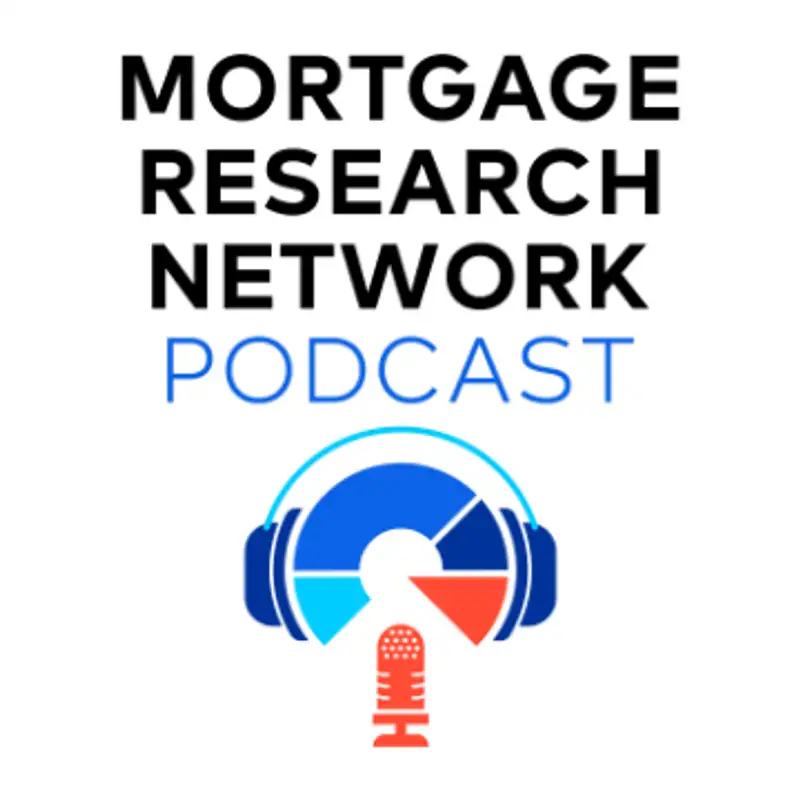Housing Emergency, or Just Headlines? What a Declaration Might Change
Welcome to the Mortgage Research Network Podcast. Just a note that this podcast audio is AI-generated but based on content that was produced by people. And your hosts, Tim and Craig, are real. Without further ado, let's get into today's topic.
I'm your host, Tim Lucas, editor of MortgageResearch.com and a former mortgage professional, and with me is Craig Berry, a mortgage originator with 25 years experience.
Hi everyone, thanks for joining us again.
In early September, Treasury Secretary Scott Bessent told the Washington Examiner that the Trump Administration might be considering a national housing emergency to deal with the housing unaffordability crisis. It's a huge issue of late. in 2020, only California was considered unaffordable for average homebuyers, but today, homeownership is out of reach in 17 states across America according to hud.
Those numbers are staggering. What's driving such a dramatic shift in such a short time?
The most immediate impact comes from mortgage rates. back in early 2021, a $3,000 monthly payment could get you a $740,000 mortgage at 2.65% interest. Now, with rates around 6.5%, that same payment only gets you a $480,000 house.
That's a massive difference in purchasing power. And I imagine that's affecting both buyers and sellers.
Exactly. We're facing two seemingly contradictory problems at once. Zillow's reporting that we're short 4.7 million housing units nationwide, yet we simultaneously have a 9.2 months' supply of new houses that aren't selling.
Hmm... so we have both a shortage and a surplus? How does that even work?
It's like having a store full of expensive products that nobody can afford to buy. And now this proposed housing emergency declaration might try to address it. Secretary Bessent is looking at everything from standardizing building codes to reducing closing costs.
And it's not just home prices and interest rates. Insurance costs have gone up dramatically.
Oh yeah. according to Harvard's Joint Center for Housing Studies, homeowners insurance premiums jumped 20% just between 2020 and 2023. And that's on top of inflation driving up utilities and other household expenses.
So what solutions are they actually considering under this emergency declaration?
Well, that's the thing. Everything and nothing at the same time. Bessent didn't give really any details. In fact, he kind of mentioned the national housing emergency non-chalantly. If you haven't seen the video, check it out. We can guess at a few things that could happen, but they are pure speculation at this point. For buyers, things like tax credits could be rolled out, similar to the $8,000 credit we saw in 2008. A national down payment assistance program is possible, although congress has been looking at this going on five years now since the early Biden administration. For sellers, there could be incentives to put their homes on the market, like special interest rate discounts to help people move from their current low-rate mortgages.
That lock-in effect is real. Millions of people must feel trapped in their homes because they don't want to give up their 3% mortgage.
Right, and that's why the administration could float the idea of bridge loans and increasing seller concession limits. There's been a lot of talk about tariffs, but we could even see them exempting tariffs on construction materials from Mexico and Canada.
Building permits and zoning are also holding back building. Though I understand Secretary Bessent specifically said they don't want to interfere with local government control?
Right. Stephen Henn, an economics professor at Sacred Heart University, points out that local zoning and permitting regulations are often the biggest barriers to new housing construction. But any federal attempt to override those would likely face serious legal challenges.
So even with emergency powers, their hands are somewhat tied?
Well, they can still make a significant impact. The National Association of Realtors is strongly supporting these efforts, with their Executive VP emphasizing how crucial this is for helping families build generational wealth through homeownership.
It's fascinating how different this crisis is from 2008, isn't it?
Completely different. back then, we had too many houses and not enough qualified buyers. Now we have buyers who could qualify if rates were lower, but if rates were lower, they wouldn't be able to find affordable homes, thanks to rising competition. Plus, homeowners can't afford to move because in some cases they would pay twice as much monthly to sell and buy again.
Looking ahead, what should we be watching for?
Three key things: First, watch how local governments respond to any federal intervention. Second, keep an eye on mortgage rates. even small changes can have huge impacts on affordability. And finally, pay attention to how these emergency measures might affect the long-term stability of the housing market.
So it sounds like we're really at a crucial turning point for American housing.
You know what? We really are. And while these emergency measures might provide some short-term relief, the bigger question is whether they'll lead to the kind of structural changes we need for a more sustainable and accessible housing market in the future.
That's about all the time we have for this topic, but we go into even more detail on the site. To learn more, go to Mortgage research.com and type housing emergency in the search bar. We'll see you next time on the Mortgage Research Network Podcast.
